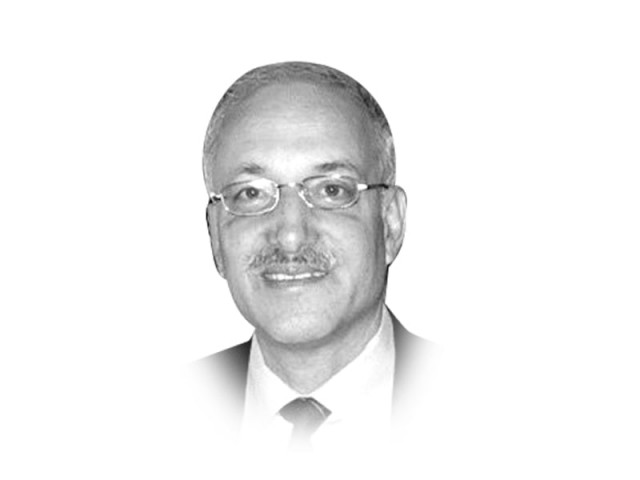Mother language education
Researchers have discovered that children who are taught in their own language understand concepts better.

Before I go into the remarkable achievements of these two young men and others like them, I would like to mention very briefly the language situation in Pakistan. The Summer School of Linguistics (SIL), which is a language-research institute, publishes a book called the Ethnologue. This is a record of languages all over the world and is available both in the printed form as well as the internet version. The SIL team estimates that Pakistan has 72 languages. The important point is that except for Sindhi and Pashto (but that too up to class-5 in some areas) none of these languages are media of instruction in the state sector or the expensive, elitist private schools, colleges and universities. Some of them are taught as subjects in educational institutions and are subjects of examination in the civil service examination both at the provincial and the federal levels. However, they are not taken seriously either by students or teachers. They are treated as easy-to-pass subjects. Their examiners and teachers are people who have degrees but they feel that if they fail students, nobody would take their subject and so resort to liberal marking.
The conditions described above create pressures which bring about what has been called ‘language death’. When the last speaker of a language dies, a world view, a culture, an identity, a repository of collective knowledge and literature dies. This by itself is a great loss and there is great concern in the world that the languages of the world are vanishing at a very fast rate.
In Pakistan, conditions for all indigenous languages are such that they are under pressure and small languages are in danger of dying. Now, one of the things which can save a language from dying, which can reverse language shift, is teaching it to children. For this one needs primers, books and recorded folk tales and other oral literature. This, in turn, requires a standard spelling to be determined and some dialect of the language to be selected as the one in which the teaching will be carried out. In short, teaching a language immediately makes it standardised and gives it the support it needs to survive. This is one reason for supporting mother tongue education. But that is not all. Researchers have discovered that children who are taught in their own language understand concepts better and actually learn the other languages they are taught later than those who start their schooling in an alien language. They found that even in mathematics those who are given mother language education are better learners.
Zaman Sagar and Khwaja Rehman have pioneered schools in Khyber-Pakhtunkhwa in communities that speak small languages with the help of European and American researchers from the SIL and the Frontier Language Institute, which was first established in Peshawar and then moved to Islamabad where it is called Forum for Language Initiatives. One of its pioneers was Dr Joan Baart who has written much on Gauri (Kalami) and recently translated a book on Ormuri from Russian into English. These people trained teachers and prepared teaching material in these small languages. Zaman’s own language is Gauri and he was instrumental in setting up a school in the Gauri community in Swat which has six teachers and 135 students. The community itself consists of about 100,000 people. Yet another community is the Torwali community, which is also in Swat. It also consists of 100,000 people and has a school with 85 students and three teachers. This initiative came about in 2008 and is at the preschool level. Zaman is the director, or coordinator as he modestly puts it, and his job is to train the teachers and write primers in order to make the programme a success. And his hope is that the pre-school will eventually go up to class-5 as early as next year. In Hazara, Gojri is taught in 10-12 schools to the Gujjar community. As these people are nomads and keep travelling with their herds of goats, these schools are mobile and move with the Bakarwals (keepers of goats). However, there is a permanent school near Shogran up to Class-5. This school has 35 children who are taught by two teachers.
In Chitral, too, some of these experiments are taking place. For instance, Palula is taught to 50-52 children. It is spoken by about 10,000 people. It is taught in two schools and there are three teachers teaching it at the preschool level. In Chitral, too, Kalasha is also taught. This is taught in the Bumboret valley and a Greek social activist and philanthropist, Athenesios Leronis, devoted himself to teaching the Kalash children up to Class-5 using the Roman script to write it, whereas all other languages are written in variants of the Perso-Arabic script.
The experiment of using the mother tongue for teaching little children is also taking place in some communities of Sindh. Kachhi and Parkari are being taught to children of these rural working-class communities. The present author met some of the young activists who run these schools in Bangkok, in 2010, and was much impressed with them.
The two young researchers, Khwaja Rehman and Zaman Sagar, carried out a survey of the capability of students in languages and mathematics and found that they were better in their comprehension of concepts than those who had studied in Urdu-medium schools, since Urdu was a foreign language for them. The rest of the world confirms this result as students everywhere do better, even in learning English, if they have been given their basic childhood grounding in concepts in their mother tongue.
Published in The Express Tribune, November 28th, 2011.















COMMENTS
Comments are moderated and generally will be posted if they are on-topic and not abusive.
For more information, please see our Comments FAQ